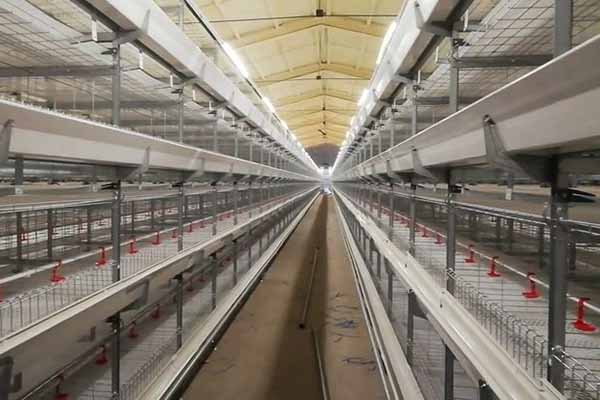Kenya Farmers Talk About Their Experience with Automated Equipment
Time : 2025-04-24
Automated equipment has been making waves in the agricultural sector, and Kenya is no exception. Farmers across the country are embracing these new technologies to enhance their productivity and efficiency. In this article, we’ll chat with some Kenyan farmers about their experiences with automated equipment. Get ready to hear some real-life stories and insights!
Introduction to Automated Equipment in Kenya
Over the past few years, Kenya has seen a significant increase in the adoption of automated equipment in farming. This shift is primarily driven by the need to increase crop yields, reduce labor costs, and improve overall farm efficiency. From tractors to drones, automated equipment is becoming an integral part of modern farming practices.
Meet the Farmers
We had the pleasure of speaking with several Kenyan farmers who have been using automated equipment on their farms. Let’s dive into their experiences.
James, a Maize Farmer
James has been farming maize for over two decades. He started using an automated sprayer on his farm two years ago. “The sprayer has been a game-changer,” James says. “It’s so much faster than manually spraying the fields, and it ensures that every single plant gets the right amount of pesticide. Plus, it’s much safer for my workers.”
Jane, a Tea Grower
Jane manages a tea plantation in the Rift Valley. She’s been using automated tea harvesters for the past five years. “Before the harvesters, we had to hire a lot of workers during the peak season,” Jane explains. “Now, we can get the same amount of work done with fewer people. The harvesters are also very precise, which means we get higher-quality tea leaves.”
Peter, a Dairy Farmer
Peter runs a dairy farm in the central highlands of Kenya. He invested in an automated milking system three years ago. “The milking system has been a blessing,” Peter says. “It’s not only efficient but also hygienic. The cows are happier too, as they don’t have to wait in line for milking.”
Benefits of Automated Equipment
So, what are the key benefits that Kenyan farmers are experiencing with automated equipment?
Increased Productivity
Automated equipment can significantly increase productivity on the farm. For example, a single automated sprayer can cover the same area that would take several workers hours to cover manually.
Cost Savings
While the initial investment in automated equipment can be high, the long-term cost savings are substantial. Reduced labor costs, improved efficiency, and lower input costs all contribute to a more profitable farming operation.
Improved Safety
Manual labor can be dangerous, especially in agricultural settings. Automated equipment reduces the risk of accidents and injuries, making the workplace safer for farmers and their workers.
Better Data Collection
Many automated machines come with built-in sensors and data collection capabilities. This allows farmers to monitor their operations more closely and make data-driven decisions.
Challenges and Considerations
Despite the benefits, there are some challenges and considerations that farmers should be aware of when adopting automated equipment.
High Initial Costs
The initial cost of purchasing automated equipment can be a barrier for many small-scale farmers. However, there are financing options available, such as loans and government subsidies, that can help offset these costs.
Training and Support
Farmers need to be properly trained on how to use automated equipment. Without adequate training, the equipment may not be used to its full potential. Additionally, ongoing support and maintenance are crucial for the longevity of the equipment.
Adaptability
Not all automated equipment is suitable for every farm. Farmers need to consider the specific needs of their operation and choose equipment that is compatible with their land, crops, and farming practices.
Conclusion
The adoption of automated equipment in Kenyan farming is on the rise, and it’s not hard to see why. The benefits of increased productivity, cost savings, improved safety, and better data collection are hard to ignore. However, farmers need to be aware of the challenges and considerations that come with this technology. With proper planning and support, automated equipment can be a valuable tool for Kenyan farmers.
Tags












